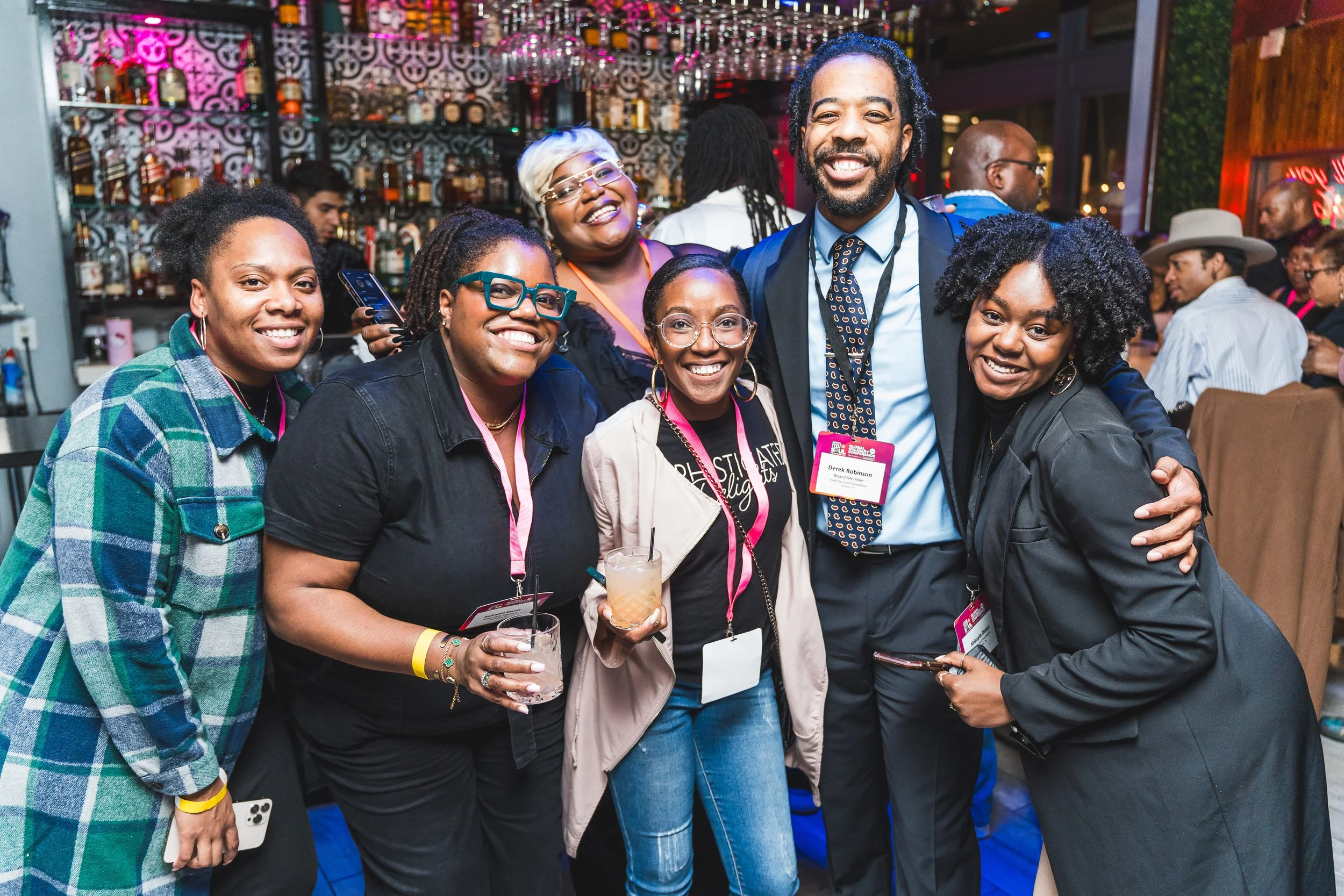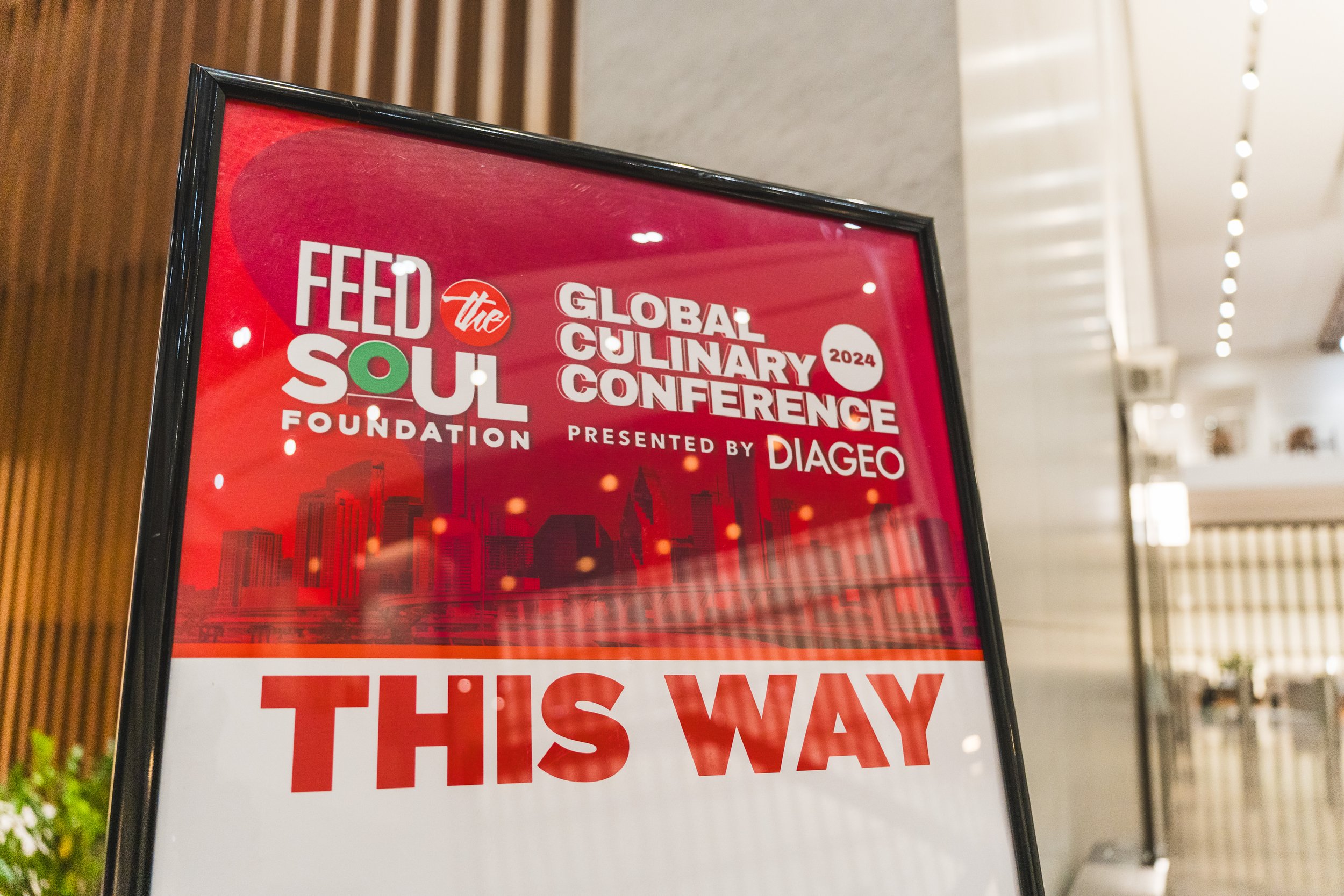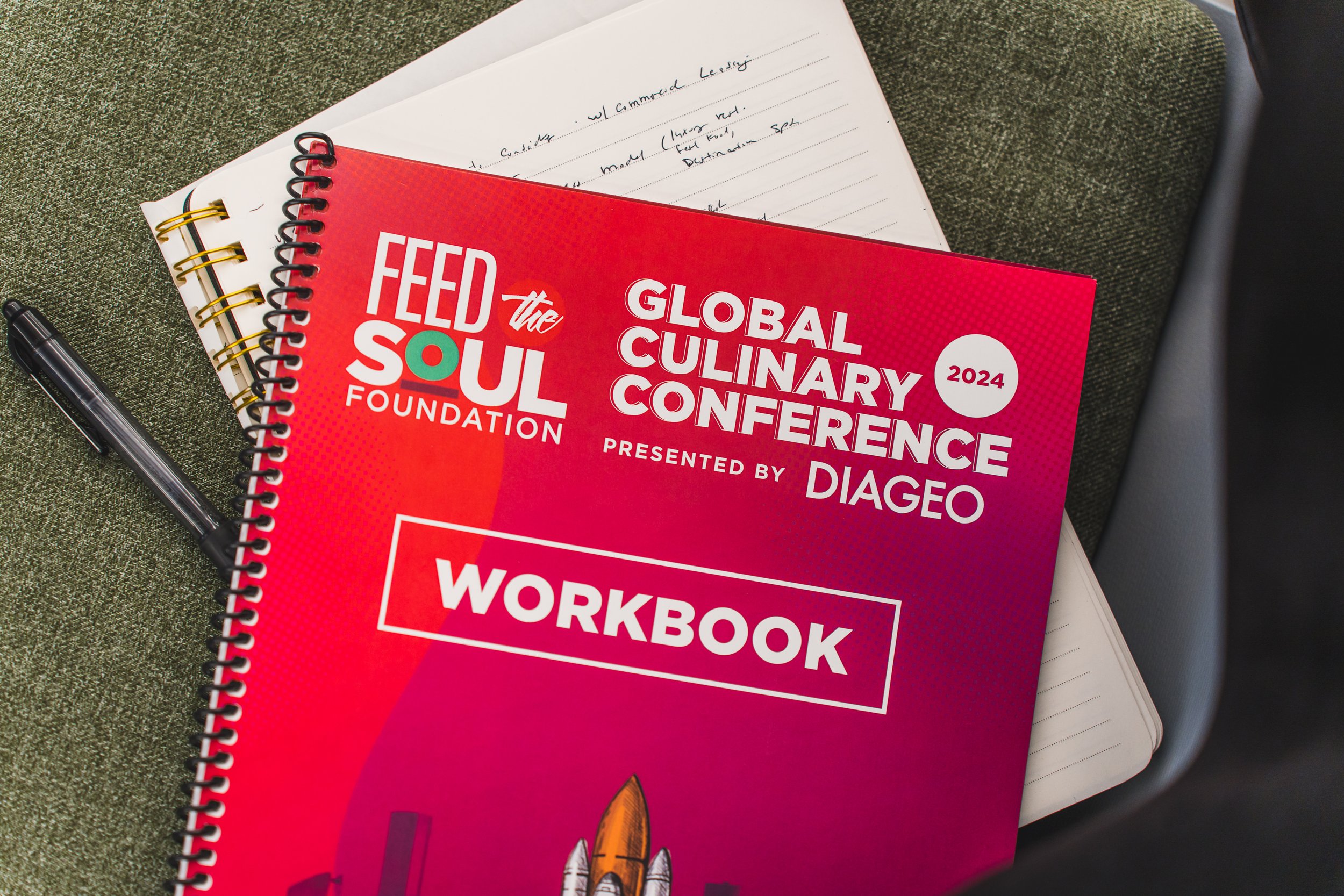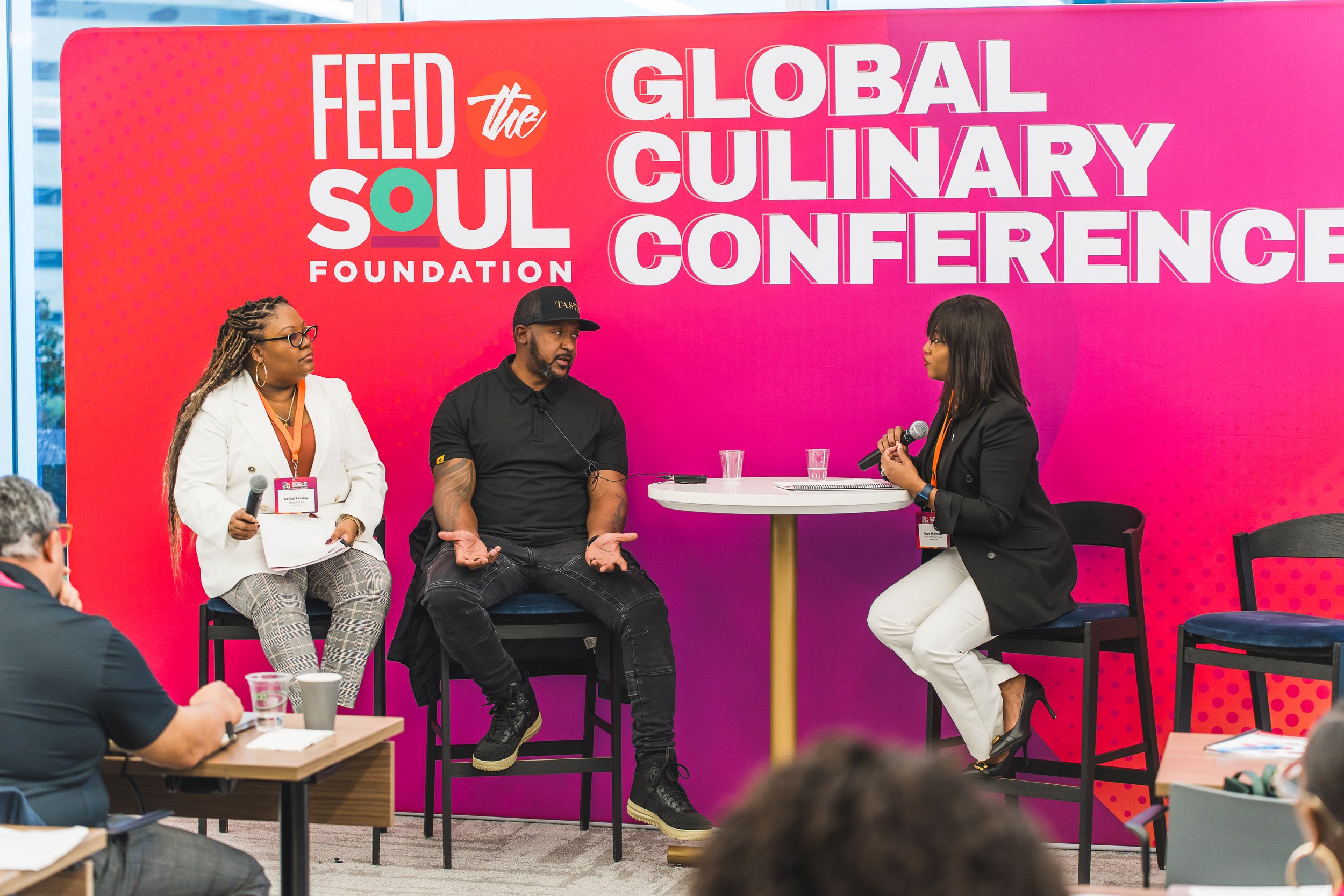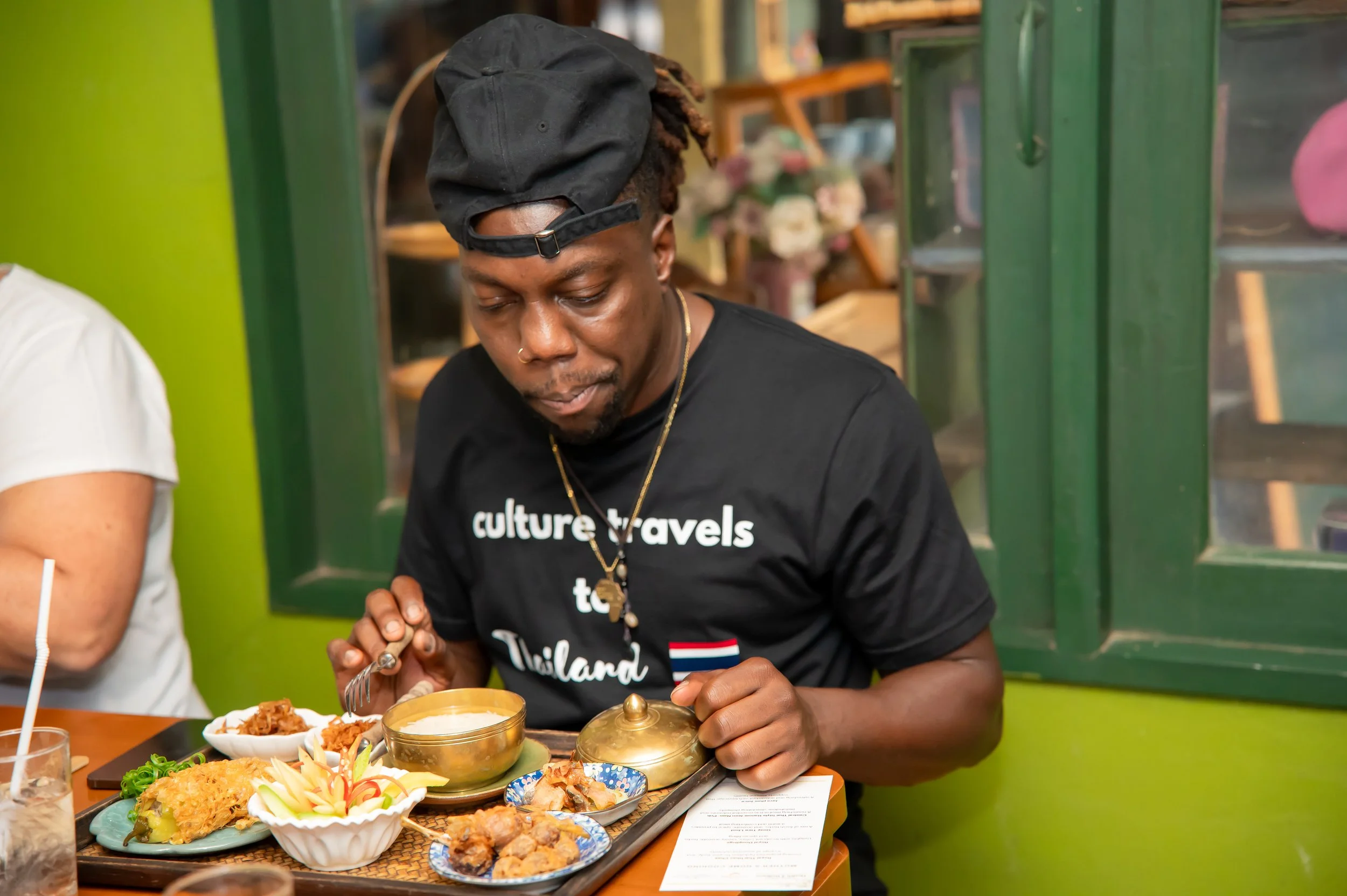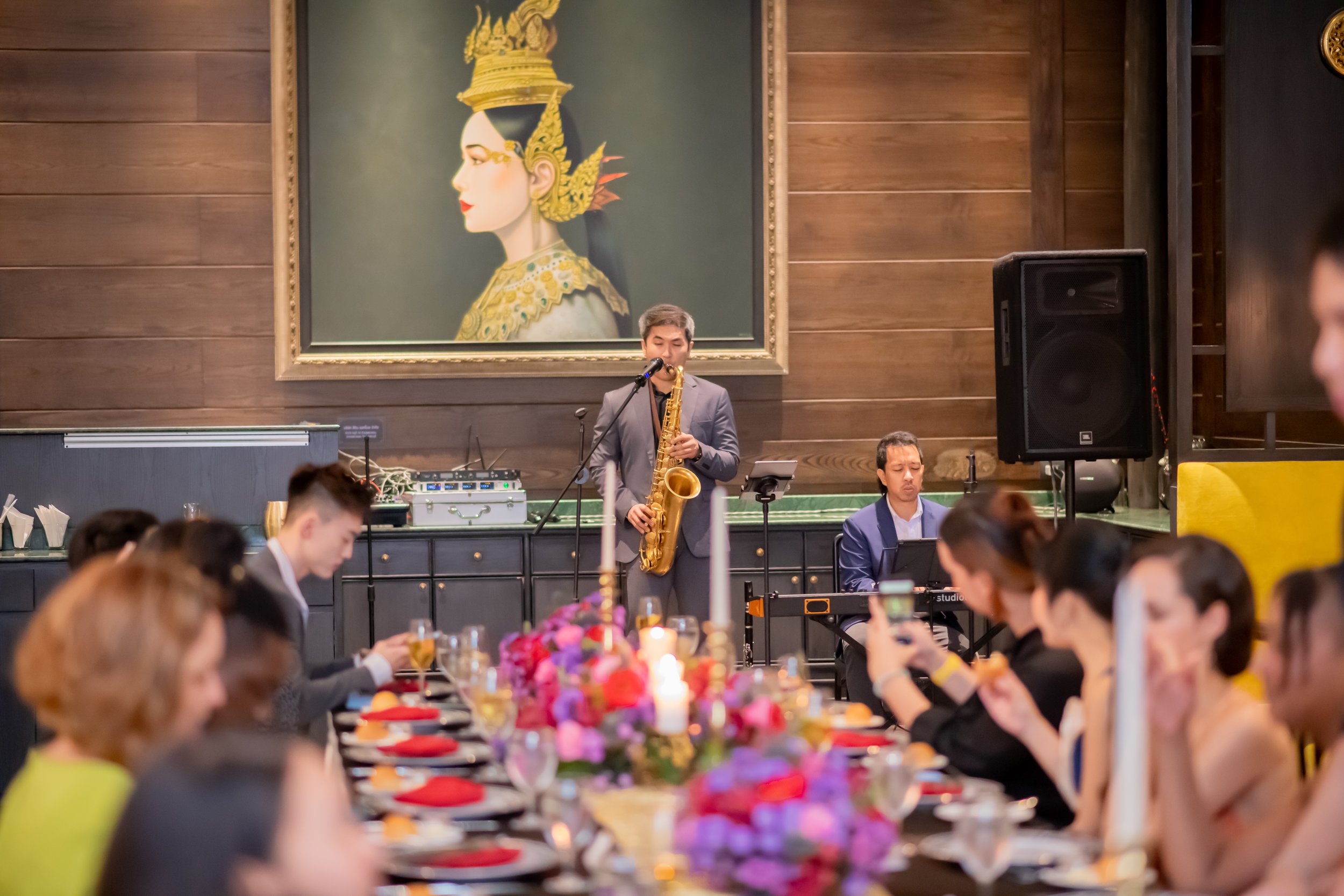The Global Culinary Conference: A Required Experience for Restaurant Owners
By Leroy Adams
PHOTO: TRULOVE STUDIOS
Are you serious about starting or growing your restaurant or food truck business? The Global Culinary Conference should be on your list of events in 2025.
The Global Culinary Conference, hosted on January 22, 2024 by Feed the Soul Foundation, is designed to boost culinary businesses. It features dynamic speakers, panels, master classes, and networking events, all focused on various aspects of culinary business growth, such as accessing capital, signing leases, bookkeeping, marketing, and creating sustainable growth plans. The conference provides valuable insights and skills for attendees looking to expand their culinary enterprises.
The Antidote to the Keith Lee Effect
During my evening brainless stroll on TikTok last night, I found a video with a creator with over 26,000 followers. In his video, he pretended to place a delivery order with a local restaurant. When the restaurant asked for a name for his order, he paused and replied, "Um..Keith Lee.” This was not his real name.
Keith Lee is a famous social media food critic. He has over 17 million followers across Instagram and TikTok. He travels around the country visiting different restaurants, sometimes at their request and sometimes not, and shares his reviews about their food, service, and overall experience. One of his most popular reviews of a family-owned pizza restaurant in Las Vegas generated 52 million views, 76,000 comments, and 206,000 shares on TikTok. After he posted that video, the restaurant ran out of products due to high demand. Simply put, a review from Keith Lee can either make or break your restaurant. Ask any restaurant owner in Atlanta.
The power of Keith Lee is undeniable, which is why a trend of people ordering food in his name has taken off. The idea is that restaurants will take your order more seriously if they believe it's Keith Lee with his 17 million followers coming through their door. The truth is, you don't need a good review from Keith Lee to build a strong and profitable restaurant or food truck business. Plenty of culinary entrepreneurs have amassed a strong following, reputation, and loyal fan base through education, consistently good service, and good food. This brings us to the point of this article: building profitable restaurants takes work and requires education, resources, and building a professional network you can lean on.
PHOTO: TRULOVE STUDIOS
We were excited to see the team behind Black Restaurant Week announce their latest venture, the Global Culinary Conference. This conference, hosted by Feed the Soul Foundation in Houston, Texas, is designed to boost culinary businesses. It features dynamic speakers, panels, master classes, and networking events, all focused on various aspects of culinary business growth, such as accessing capital, negotiating commercial leases, bookkeeping, marketing, and creating sustainable growth plans.
The conference provides insights and skills for attendees looking to expand their culinary enterprises.
Our team attended the conference, and we've shared some of the highlights and key takeaways from the event. Overall, if you're in the culinary industry, this is an event you want to attend.
Event Highlights and Key Features
"Black Restaurant Week is our designated campaign, but our focus is more than just a week. We have a lot of great programming we use to support our network. Corporations are coming to us for partnerships, and we're highlighting these amazing culinary businesses. These businesses do amazing work creating unique culinary experiences for us and supporting their communities. This weekend, the attendees found encouragement and a sense of belonging. They were sharing innovation tips and ideas that have found success in their cities. Now these owners have more inspiration to go further in their business. That's what this event is about." - Derek Robinson, Managing Partner, Black Restaurant Week, LLC
Derek Robinson helps the attendees during a workshop session.
Great speakers are the cornerstone of any event. The Global Culinary Conference featured masters of their craft delivering masterclass-type advice and strategies related to marketing, accessing capital, and how to win contact bids with household brands like Levy Restaurants, Sysco, and entertainment behemoth Live Nation. We'll talk more about the speakers below, including how approachable they were before and after their sessions, but first, the workshops.
Any conference that bills itself with masterclasses and business development sessions to help boost your culinary businesses must include hands-on workshops. When you attend the conference next year, prepare to put a little work into refining or building the fundamental elements of your business, like your business plan, capital acquisition plan, financial statements, Quickbook training, building a profitable menu, and hiring the right team. Are you afraid you might be the only one lacking in these areas? Don't! As we walked around, we saw culinary entrepreneurs at various levels of their businesses. What we loved the most was the community support. No shame or judgment about where you're at; it was about trying to help you get where you want to be.
PHOTO: TRULOVE STUDIOS
Let's be honest, strong speakers, productive workshops, and good food are essentials for any successful conference. What is often overlooked but always felt is the energy of the attendees. It's something about being enveloped in a community of people who get it. They understand what you're going through and know the feeling of overcoming. The attendees at the conference were open, honest, and helpful with one another. Throughout the conference, you would hear comments like, "Yes, I feel the same way, here's what I did…" or "This worked for me, let's see what it could look like for your business," or our personal favorite, "Sis, set your prices and charge what you believe your products and services are worth." It was a wonderful and supportive community to be with.
Restaurant owners exchange tips and advice during the Global Culinary Conference.
Don't worry if you missed it; we have a few more highlights to share, starting with some key points and tips shared by the speakers.
First up, have you ever wanted to partner with Live Nation?
Speaker Insights
SPEAKERS LEFT TO RIGHT: Darnell Green, Supplier Diversity of Sysco; Will Norwood, Supply Diversity Manager of Live Nation, Chef Dayanny Delacruz, Vice President of Culinary at Levy Restaurants, Dawn Kelly Founder of The Nourish Spot, LLC
"We want your business to scale with us, and that could mean a booth at one of our festivals - Honeyland Festival, Afro Nation, etc. - and hopefully that leads you to more festivals and events if the market fits, Will Norwood, Live Nation Supply Diversity Manager
Everyone wants to know how to secure a contract with a major brand. Industry access, connections, and brand exposure often make the endless pursuit worthwhile. The panel "How To Win Contract Proposals" was perfect for restaurants or food truck owners seeking opportunities with brands like Levy Restaurant, Sysco, and Live Nation. Additionally, renowned Houston Chef Don Bowie offered important hiring tips during his “Master Class: Hiring the Right Team” session.
Check out their tips below:
KNOW YOUR BUSINESS
"Understand your business. Understand your demand. Understand the quality of your product. Most importantly, understand what you need when partnering with Sysco. We want to help you grow, so understanding the ins and outs of your business helps us to do that" - Darnell Green, Supplier Diversity, Sysco
STAYING READY
"When we won the bid with the U.S. Open, we were responsible for bringing in our equipment, products, and staff. We ensured a good relationship with our vendors to payout after the U.S. Open. You must deliver to the best of your ability when you give somebody your word. We stayed ready so we didn't have to get ready once opportunities like this came our way" - Dawn Kelly, The Nourish Spot
BUILDING A STRONG TEAM
“Admit what you don’t know and bring in people who have those skills and can execute in those areas. Invest in more upfront training, and soft skills training, and look for professional development opportunities sponsored by grants for your team. Before launching Taste, I worked at a white establishment as an Executive Chef to learn their tricks and trades. I discovered these businesses had better systems in place for training and skill development for their staff. Taking advantage of a conference like the Global Culinary Conference is how you learn what you don’t know and discover new opportunities for your staff” - Chef Down Bower, Taste Bar + Kitchen
Chef Down Bower shares his tips on hiring and skill development for your staff.
SUBMITTING A COMPLETE BID PROPOSAL
"Answer all the questions on your application. Don't get fancy; answer the questions completely. You're not the only person submitting. Don't give us a reason to reject your bid. Tell us exactly what you're delivering and how much it costs. Make sure your team - distributors, partners - understand what you're going after before you submit your bids with Live Nation or the U.S. Open" Will Norwood, Live Nation
More from our interview with Will Norwood?
Q: What key factors do you consider when partnering with culinary businesses for Live Nation events?
A: Capacity, unique product: many of our venues are unique by design. All Live Nation events are not the same; they may take on the namesake of the venue, the culture, or the local community, so having a unique product that can blend in with that space is important. If you can meet our fan's needs with a unique product, we're open to talking to you to learn more.
Q: What are some of the mistakes you see business owners make when pursuing an opportunity with Live Nation?
A: Submitting incomplete bid proposals. The person putting that RFP together is asking those questions for a reason. Some people may not understand the question, or they don't answer it fully. Don't give us a reason to kick your proposal out after you've spent so much time on it.
UNIQUE STORIES CREATE OPPORTUNITIES
Culture Travels visit Mother’s Home Cooking restaurant in Saraburi, Thailand
Have you ever been to Thailand? It's a culinary paradise. The Thailand Tourism Authority invited our team to participate in a one-week media tour of their health and wellness travel experiences - massages, meditation, art therapy, yoga, and food. Lots of food. Each dish burst with colors, flavors, culture, and history.
For example, the Thai Khao Chae, a favorite summertime dish in Thailand known for its cooling properties and hydration for the body, is a dish rich in purpose and history. According to historical records, Chao Chom Manda Sonklin, the wife of King Rama IV, introduced Khao Chae to the Thai people. Accompanying the king on a palace visit, Chao Chom Manda decided to pass her knowledge in making Khao to the palace kitchen staff. The dish soon became popular and served only to members of the royal family and the aristocracy. According to Thai celebrity chef McDang, who grew up in a Bangkok palace, Khao Chae "is the only Thai dish that can truly be considered royal Thai cuisine."
This story reminded me of the comment Next Level Chef Mariah Scott shared during the conference, "Stories set the tone in a menu because it helps people understand what your restaurant is about." In Thailand, almost every dish comes with a story of the ingredient's history and its connection to Thai history and culture. It made me feel like I was connecting to the local community in perhaps the best way you can honor someone's culture: eating their food. Nothing says, "I'm happy to be here," like sitting with someone to break their bread with them.
Having a unique product with a story was a consistent theme at the conference, especially when securing contracts with brands. What we learned was market fit - does your product service this specific community - lends to a unique product? We asked Next Level Chef and Culinary Professor Mariah Scott, who led the "Building a Profitable Menu" session, how can restaurants develop a unique menu that connects with a market or local community.
Chef Mariah Scott (right) poses for a photo with a conference attendee.
The renowned chef emphasized the importance of storytelling:
“Some people already know what direction they want their menu to go in. I try to figure out what their story is. For example, what makes you different if you're opening a soul food restaurant and there are already two soul food restaurants within a 3-mile radius? What will make your menu memorable and keep people coming back? You make money by figuring out your story and creating that emotional attachment with the customer.
When you have a story that people can resonate with, they'll want to go to your business because they connect with you. The story sets the tone of a menu because it helps us - as consumers - understand what your restaurant is about. I study the history and origin of my food and ingredients. Most food and recipes are born from a significant event - war, slavery, etc. - and the more we understand the histories of our food the more creative we can be when serving one type of food in several different ways, which always helps keep your food cost down.”
Attendee Experiences and Networking Opportunities
"Sis, set your prices and charge what you believe your products and services are worth." - Conference Attendee
PHOTO: TRULOVE STUDIOS
It's the encouragement and community for us that stood out during the conference. Attendees came from across the country descending into Houston, creating unique networking opportunities beyond your city, state, and industry. From Atlanta to Miami to New York to Los Angeles to Louisiana, restaurants and food truck owners joined to share expertise, build networks, and grow their technical skills to create profitable and sustainable culinary businesses.
Let's see what some of the attendees had to say about their experience:
Jo-Neishia Johnson, co-owner of 2 Sisters and A Deviled Crab, found opportunities through networking:
"We're from Jacksonville, Florida, and we decided to come to this conference because we're new in this industry. We will celebrate our second year next month. We came with the anticipation of finding resources and networking opportunities that can teach us and help move your business forward. One person I've met is Will Norwood from Live Nation. I spoke with him about opportunities in Tampa, and he asked me to follow up. Our signature dish is from Tampa, and we're looking for an opportunity to go into that market. I gave him a pitch about our signature item, what it means to the city of Tampa, and how we can help fill that void and bring our signature item to their events in Tampa. He was excited and asked me to reach out."
PHOTO: TRULOVE STUDIOS
Jamin Butler, co-founder of Black Coffee Company, expanded his network:
"I'm from Atlanta, and I attended a Black Restaurant Week event in Los Angeles at Vector 90, the co-working space owned by Nipsey Hustle. I got there and met an amazing network of people. They embraced us and shared collaboration opportunities. It was inspiring to see folks coming out of town to support the community, and it showed me what we could do for our community."
Ashley Bryant, Presenter with the African American Marketing Association, enjoyed helping attendees overcome their marketing challenges:
Talking to the restaurant and food truck owners I learned many were apprehensive, even intimated, about marketing. To negate those nerves, we focused on the power of repetition and reiteration. The first time you run a campaign, it might not go well. However, take the data and learn what works and what doesn’t. Your data will help you properly reiterate your campaigns to discover what works for your brand and audience.”
The African American Marketing Association Team
Chef Tygr, owner of Treats By Tygr, learned new marketing and menu pricing strategies:
“I’m glad I came to this event. Marketing and pricing my menu were the sessions I needed to attend. I learned a lot about overpricing vs underpricing. It was nice to see that I wasn’t the only one who needed support in these areas. I learned about simple marketing strategies that I could use without a lot of money to help get my business out there and be discoverable.”
The experience of Jo-Neishia Johnson from Jacksonville is an excellent example of how to apply what you learn at the moment so you can take advantage of every business opportunity. They clearly understood the importance of market fit and how Live Nation prioritizes this. They pitched how their signature dish is a market fit in the Tampa market and now have the opportunity to have their business represented at a Live Nation event in that city. In one conference, they learned a key business strategy, applied it, and could level up their business this year by partnering with a major brand.
TRANSFORMING THE CULINARY INDUSTRY
The Global Culinary Conference proved to be a transformative experience for culinary entrepreneurs nationwide. Through dynamic speakers, engaging workshops, and invaluable networking opportunities, attendees gained the knowledge and skills needed to navigate the complexities of the culinary industry and propel their businesses to new heights.
One of the most striking revelations from the conference was the importance of storytelling in building a successful culinary enterprise. As Mariah Scott, a renowned culinary professor, and Next Level Chef, highlights, crafting a narrative around one's menu creates an emotional connection with customers, setting businesses apart in competitive markets.
Moreover, the event fostered a sense of community and collaboration among participants. From New York City to Jacksonville to Atlanta, attendees shared experiences, forged meaningful connections, and exchanged insights, laying the groundwork for future partnerships and collaborations. The conference provided practical strategies for business growth, innovation, and creativity within the culinary landscape. The event equipped attendees with the tools necessary to thrive in an ever-evolving industry by emphasizing the power of storytelling, market fit, and strategic partnerships.
PHOTO: TRULOVE STUDIOS
The Global Culinary Conference is an essential event for individual business growth and the advancement of the culinary industry. By bringing together diverse perspectives, fostering collaboration, and imparting valuable knowledge, such conferences can shape the future of food and hospitality.
In the wake of the conference, one question remains: How will you leverage the insights gained and connections made to elevate your culinary enterprise to new heights?

